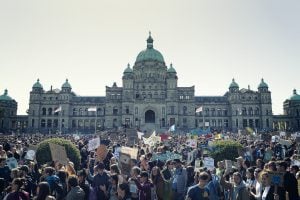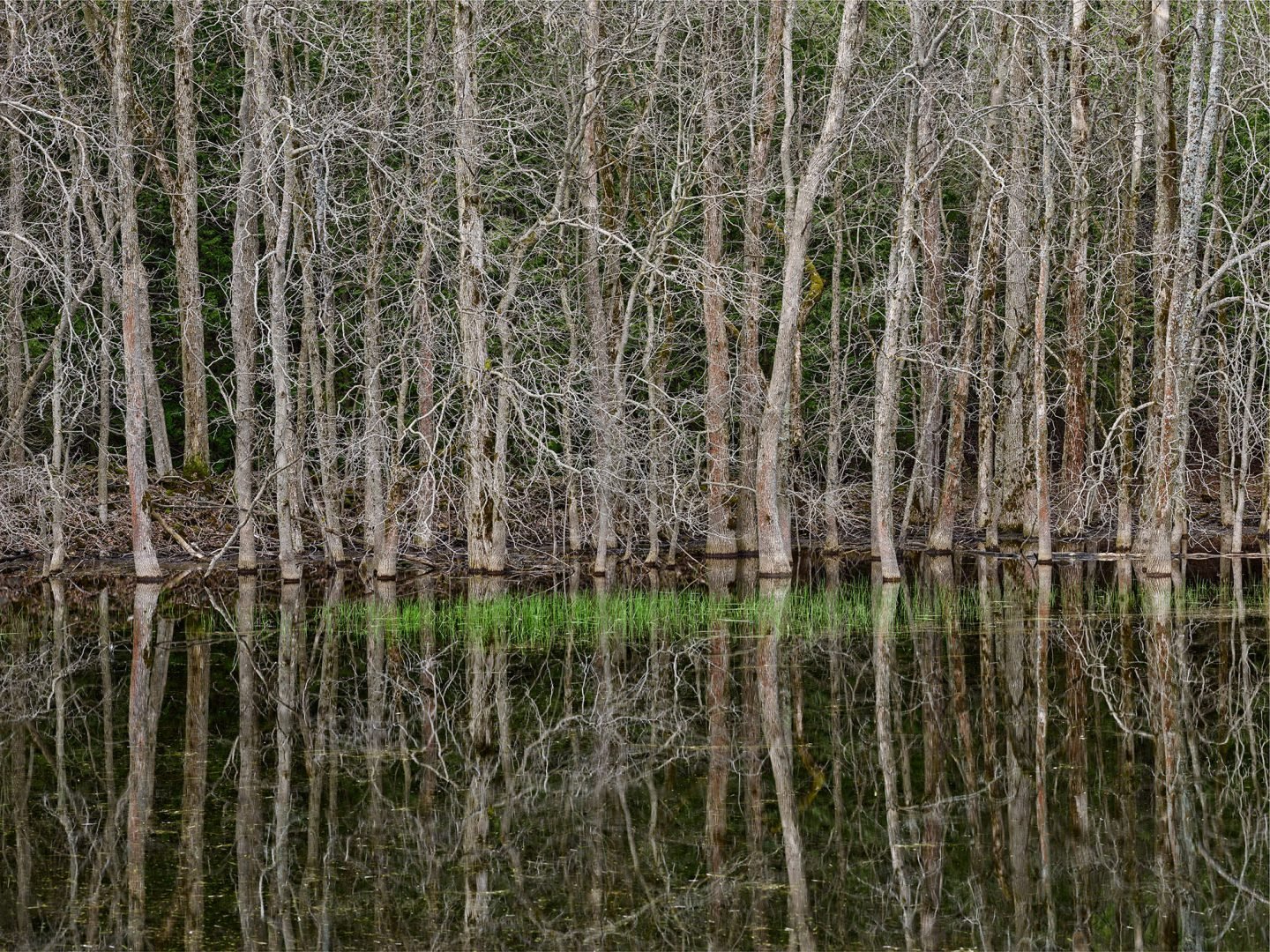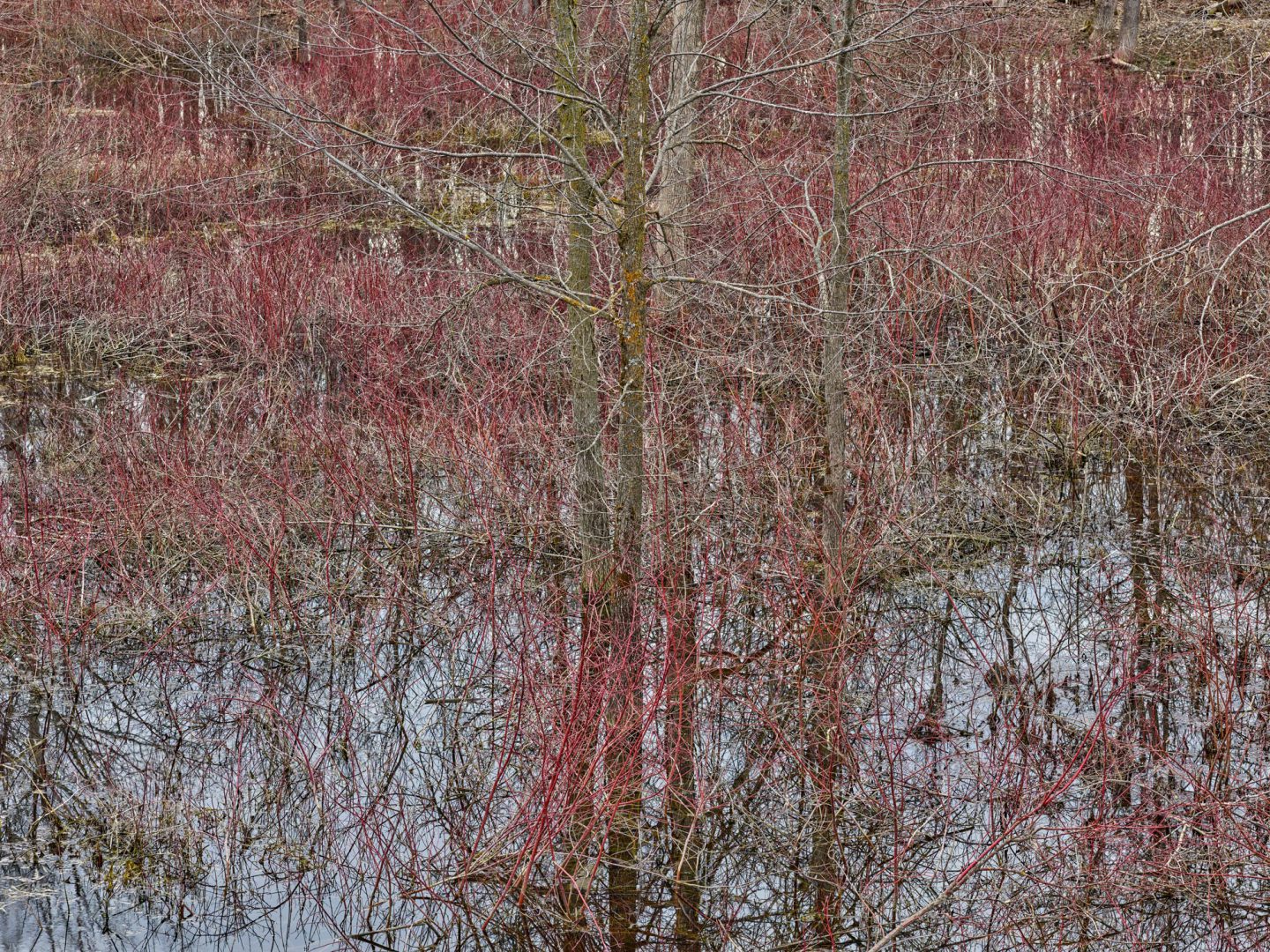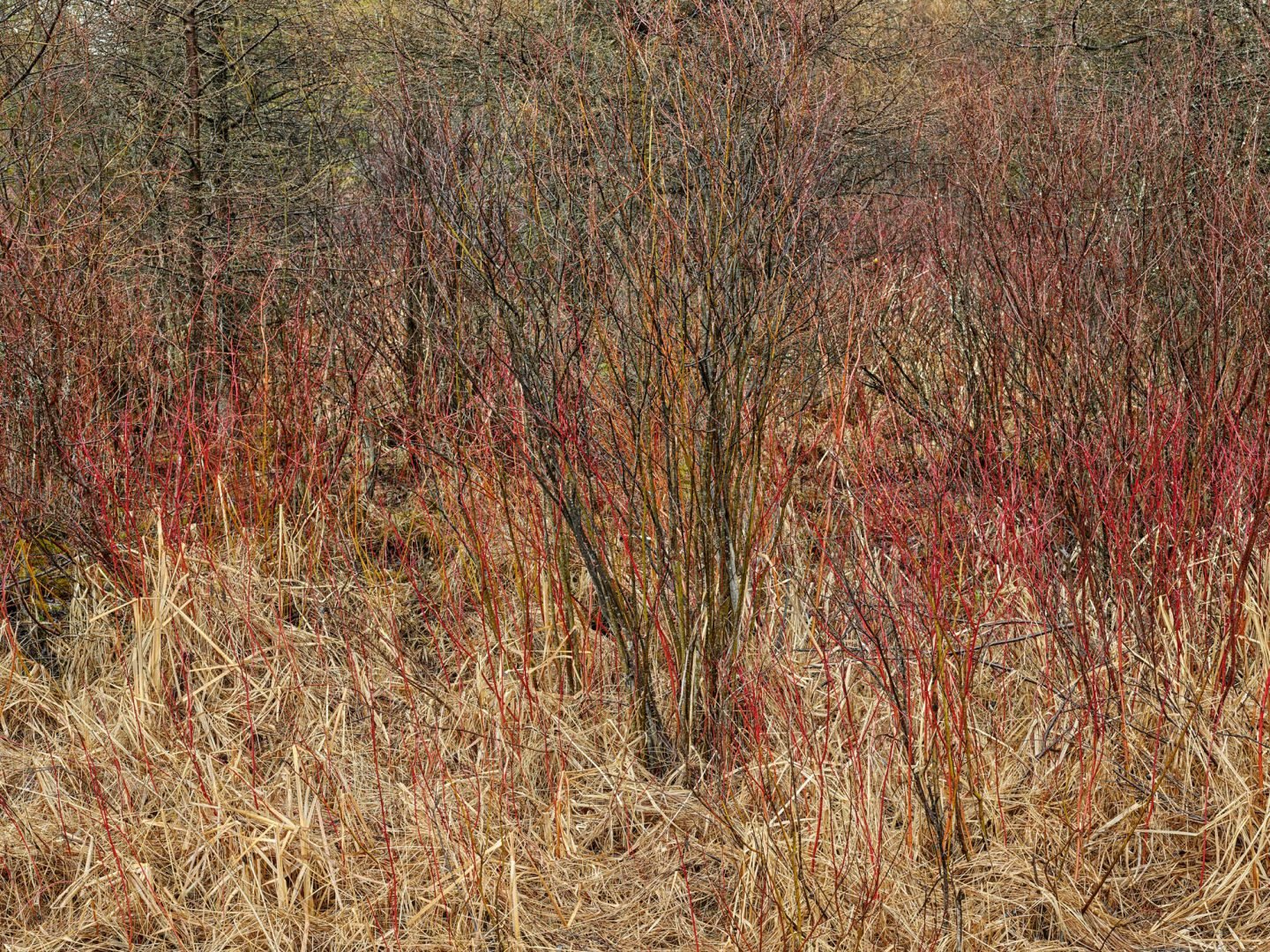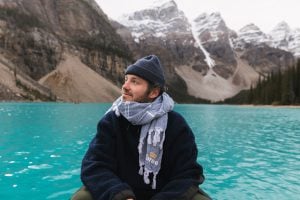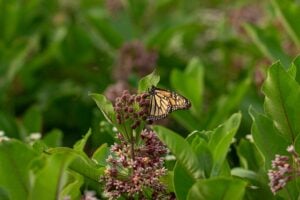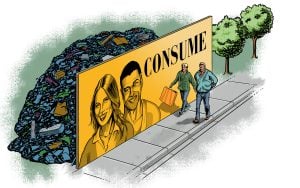Natural Order #20, Grey County, Ontario, Canada Spring 2020. Photos © Edward Burtynsky, courtesy Nicholas Metivier Gallery, Toronto
On beginning to shoot new photos
In late March I figured I’d do some deeper learning with this new camera I had. I started shooting and I just sort of fell into a project I did back in ‘81. A lot of my work that cascaded from that was very much connected to this kind of interest and respect for the natural world. I wanted to try to find a way to make images that veered away from cliche, but that resonated [with people]. It was the time of year that I liked, with all the leaves off, and I was in a great spot at the headwaters of many rivers, plus swampy areas with brush and detail … I started becoming interested in a series that paid homage to the work I did years ago, but also that made sense in the pandemic.
On a respect for nature
Here we were, pinned down by nature, but if you look at the 40 years of my work looking at nature, I was looking at how we as a species take from nature. Going back and looking at nature again as a force, and also to see it as almost fractals that mimic what we share with nature.
When all the trees bud and the green comes forward, I stopped seeing [the art I wanted to show]. There’s something about the tones and colours and the incredible detail present as the snow disappears and all the grasses are matted down to tones of straw and yellow, plus the red of the dogwood.
